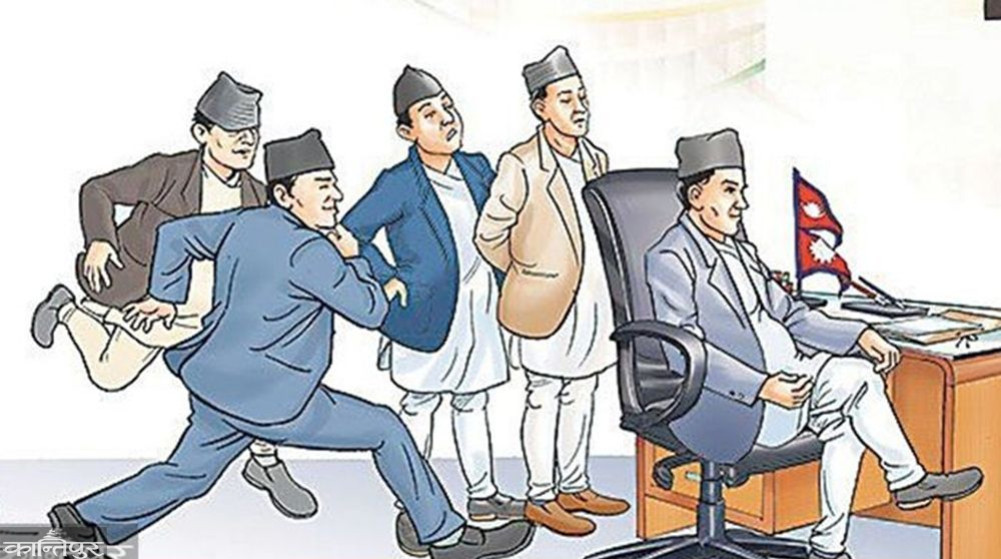Climate justice and decent menstruation
We use Google Cloud Translation Services. Google requires we provide the following disclaimer relating to use of this service:
This service may contain translations powered by Google. Google disclaims all warranties related to the translations, expressed or implied, including any warranties of accuracy, reliability, and any implied warranties of merchantability, fitness for a particular purpose, and noninfringement.


Menstruation is a natural or biological process necessary to keep the universe moving. Instead of discussing and researching about the practices related to menstruation according to the situation, it seems that thinking and practicing are done accordingly, sometimes establishing it as a negative and strange power.



If we compare minsurator (born with a uterus) and non-minsurator (born without a uterus) people, it is clear that most of the questions of minsurator get a low place in research and discussion.
Even though menstrual practices are affected by geography, economic, political, social, cultural, and technological dimensions, there is menstrual discrimination all over the world, visible and invisible, many and few, in different names and forms. It is not just a five-day issue, but a life-cycle issue, as menstrual discrimination is cyclically socialized, creating power and patriarchy. There is never a moment when it does not have an effect on minsurators and non-minsurators alike as it socializes power and patriarchy. In particular, it creates gender norms such as how to walk, what to wear, what to read, who to read, where to read, why to read, etc. It is too late to understand that gender inequality is created because of the practice of menstruation as discrimination, not because of gender inequality. The point of this article is that as much as menstruation is natural, it is not gendered. In other words, if we had mentioned menstruation instead of gender, perhaps our inclusion would have been easier and easier. The practice of menstrual discrimination is sexual and gender violence not once but dozens of times. If we analyze it based on the definition of human rights, it is a violation of human rights many times. Discrimination/violence during menses or drying up of menstruation is a symbolic effect of menstrual discrimination, while discrimination/violence throughout the menstrual cycle is a systemic effect of menstrual discrimination.
At a glance, menstruation and climate change are natural. Artificially, or the society we live in, menstruation has been tagged with discrimination and climate change has been accelerated by competitive industrialization. Climate change has doubled the days, quadrupled the nights and started affecting the whole world. The gap between the menstruators and the non-menstruators widened as the menstruating discrimination became mired in silence and ignorance. By not addressing the first and foremost cause, trying to address it through other means, the problem of gender inequality is compounded. However, there are not many campaigns, policies, and programs to be addressed, but their effects could not be long-term and universal.
Blaming the menstruator on the period of menstruation seems to be a symbolic effect, but it is a systemic effect of menstrual discrimination. Water wells may have dried up due to climate change or deforestation. Where the menstruating person and her activities are used as impure, dirty. The intention or practice of walking for an hour and a half to fetch water after the well is dry is the division of labor imposed on the minsurator because of that impure, impure blood. Availability of water, habit of bathing regularly, bathing during menstruation if convenient. But saying that one should take a bath because the Sakinas are menstruating is again because the menstrual blood is considered impure and dirty. Otherwise, it is sufficient to clean only the materials used to manage the genitals and blood. If there is no serious menstrual health problem (which is seen in about 5 percent), there should not be much of a problem when managed by the Minsurator. Suppose, if minsurators fall within 5 percent, they could help non-minsurators even in blood management. Why couldn't that happen? This is the result of the systemic effects of menstrual discrimination, even if it occurs during menstruation. The idea that only the minsurator should take responsibility for the management of water for cattle, because it is not an income or a household task, is again a systemic effect of menstrual discrimination.
One aspect of current advocacy for climate justice is that climate change has increased health problems, increased gender inequality, reduced women's participation in decision-making processes, and reduced budgets for gender equality. By the same token, it would be another mistake to program under the banner of climate change or justice. Because our advocacy has not even thought to scale the mountain of menstrual discrimination, the root builder of unequal power and patriarchy. Sexual and reproductive education, menstrual health or management have not been able to eliminate menstrual discrimination as most people think. In researching and advocating for climate justice in any environment, only if decent menstruation (solution) or menstrual discrimination (problem) can be mainstreamed, structural discrimination can be pushed.
Sufficient budget came to address health problems that have increased due to climate change at the current pace. Even if the appointment of more women, the youth, the role of indigenous peoples are enhanced, it will not yield theoretical results because there is no initiative to build unequal power and shake the foundations of patriarchy, which are prerequisites for meaningful climate justice. Because even from the 76-year-long human rights campaign to the Sustainable Development Goals, menstrual discrimination has not found a place. There is no world unaffected by climate change and no world without minsurators can be imagined. Therefore, everyone who is interested in climate change needs to work on proper menstruation.
 प्रकाशित : जेष्ठ २९, २०८१ ०७:२६
प्रकाशित : जेष्ठ २९, २०८१ ०७:२६

 २१.१२°C काठमाडौं
२१.१२°C काठमाडौं
















